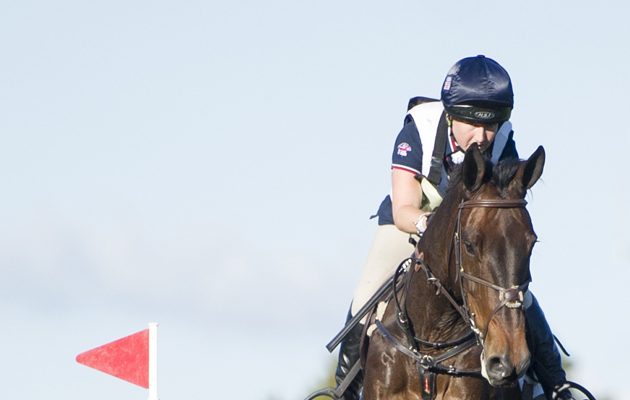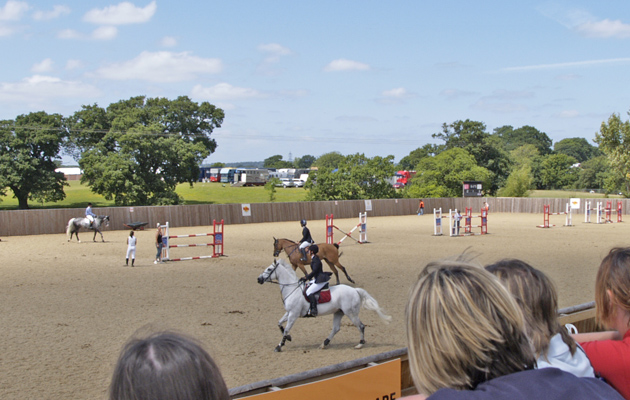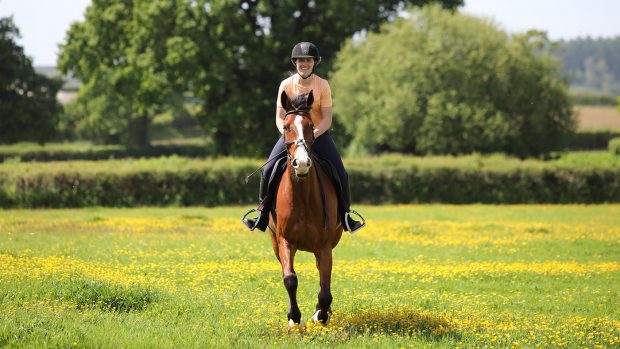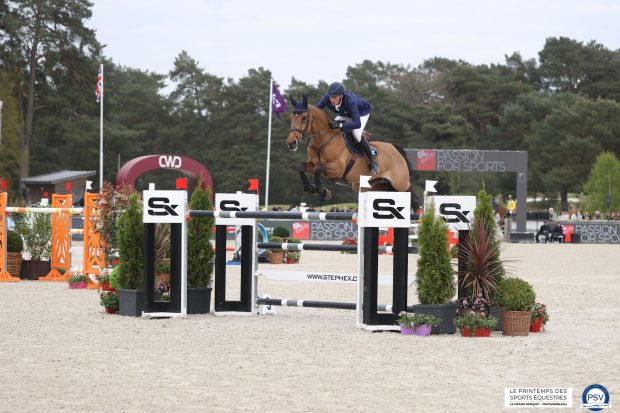It can be hard to pull yourself back in line after a string of what might be described as ‘bad luck’ — when not one thing goes wrong, but a number of things follow in fairly quick succession. Sometimes these ‘things’ are caused by the first incident, sometimes they aren’t. Here, we catch up with four successful riders who have had strings of bad luck due to various reasons, find out how they came through this, and the tips that helped them.
Harriet Morris-Baumber won team bronze at the 2009 CIC2* (now CCI3*S) Europeans and had a string of three really good event horses. And then all three retired from competing at that level, and her novice/intermediate horse sustained an injury too, so she was left with no horses to ride, no additional funds to buy horses, and no owners at that level.
“I just filled the yard with anything I could,” explains Harriet. “It was only when I saw a friend who was doing the same but in racing that the situation hit home. I was riding anything, but when I saw what she was doing it gave me the impetus to send the horses back home, refresh and revaluate. I only rode at two events in a two-year period.”
After a high profile car accident, event rider Aaron Millar’s life changed forever. Not only was Aaron left with serious injuries that led him to spend two-and-a-half months in hospital, he also had to process the accident that saw two of his friends also sustain life-changing injuries and, sadly, the death of a friend that was also travelling in the car at the same time. If this wasn’t bad enough, horses were leaving the yard as he was still in hospital, and some left before he’d even come around following the accident.
“It was awful,” says Aaron. “The accident was horrific on every level, and then having horses that I’d worked on since they were four-years-old leaving was so hard. I’d just moved to a new yard with better facilities, I had a string of great horses… and two weeks later it was gone. I understand why the owners moved their horses, but it was an incredibly hard thing to deal with for me.”
Showjumper Holly Smith also lost owners after picking up an injury. She sustained a bad break that completely shattered her ankle after falling off and landing on her feet. “It was so hard to deal with at the time,” she said.
Franky Reid- Warrilow had a run of bad results, then her top horse sustained an injury. This followed breaking her hip and collarbone over the course of a few years.
“Together it sounds awful, but I accepted that the issues I was facing were very much part of the sport,” says Franky. “You get bad results sometimes, horses get injured, and riders break bones… and seeing it for what it was was really important for me.
“The broken bones were the easiest to deal with. The horse injury was much worse as there’s so much emotion connected to a horse injuring itself.”
In all, Aaron didn’t compete for a year. During this time a syndicate that had been set up fell through via email — there was a large financial impact as the business still had overheads and so much more too.
“I decided that I needed to make sure that this couldn’t happen again and needed to rebuild with a structure, so now I have a half share in most of the competition horses here,” explains Aaron. “Financially, it’s hard work, but it’s worth it.
“I also had the extra issue that, because of the accident and how high profile it was, people had concerns about my fitness, and I get that, but it made me incredibly determined.”
Harriet used the time after she sent horses home to concentrate on teaching, look at what other professionals were doing, and researching syndicates and how they worked.
“I knew syndicates worked really well in racing so I spent a lot of time looking at the reasons people pay to be a part of them and it was mostly down to the experience,” says Harriet. “It wasn’t always about winning, and I knew that I could provide owners with the most amazing experience and that mum and dad would be able to help with that too — it’s worked so, so well.”
Although Holly lost some of her competition horses following her accident, the issue also led her to find a new owner and the horse that took her to the 2018 World Equestrian Games (WEG).
“I had known Gordon (Hall) for a while, but when I came out of hospital he came on board as an owner and we bought a horse that took me to WEG. Without the accident I wouldn’t have done that.”
As for tips, staying positive was a big thing for Harriet and, in fact, this positivity helped her to attract owners to her syndicate, which allowed her to invest in the horsepower she needed.
“I realised that making the most of what I had and seeing it as a real positive, as well as using this positivity when I spoke to people was really important. So rather than telling people my worries and woes, I focused on the positives of what I was working on and shared those. Studying the marketing and social media side of the business helped me a lot too.”
Self-belief can play a huge part in navigating hard times, as Holly well knows.
“For me, just keeping going is what changed things around. I had to look after myself and kept focused on what had worked well for me before the accident, although it wasn’t always easy.”
“I was given a really good piece of advice by a sports psychologist that helped my mindset — and that’s not to look sideways,” said Franky. “When you start comparing yourself to others, it can make your situation seem a lot worse. Being realistic with where my horses are in terms of being competitive has helped me too. But now, instead of comparing myself to other people, I focus on my personal bests as that’s something I can influence.”
Aaron suggests that finding that support network is really important.
“Make sure the people around you want the best for you — that’s been such a huge help for me. Seeking professional help too, in the form of fitness as well as for the PTSD I suffered has been key.
“The thing is, truly horrific things can happen, they can change your life in an instant, and it can be incredibly hard to process, but it does get easier. My perspective on life has changed and I have a lot of qualities I didn’t have before, and that has helped me with other aspects of my life. But for me, one piece of advice that changed things has to be that I needed to be the one to make the change, get up, and keep going.”
You may also be interested in…

‘I shouldn’t have rushed back as quickly as I did’: riders and experts share advice on how to return from injury
H&H caught up with two event riders who have sustained high profile injuries, a mental skills coach, and a soft

Subscribe to Horse & Hound magazine today – and enjoy unlimited website access all year round
Horse & Hound magazine, out every Thursday, is packed with all the latest news and reports, as well as interviews, specials, nostalgia, vet and training advice. Find how you can enjoy the magazine delivered to your door every week, plus options to upgrade your subscription to access our online service that brings you breaking news and reports as well as other benefits.




